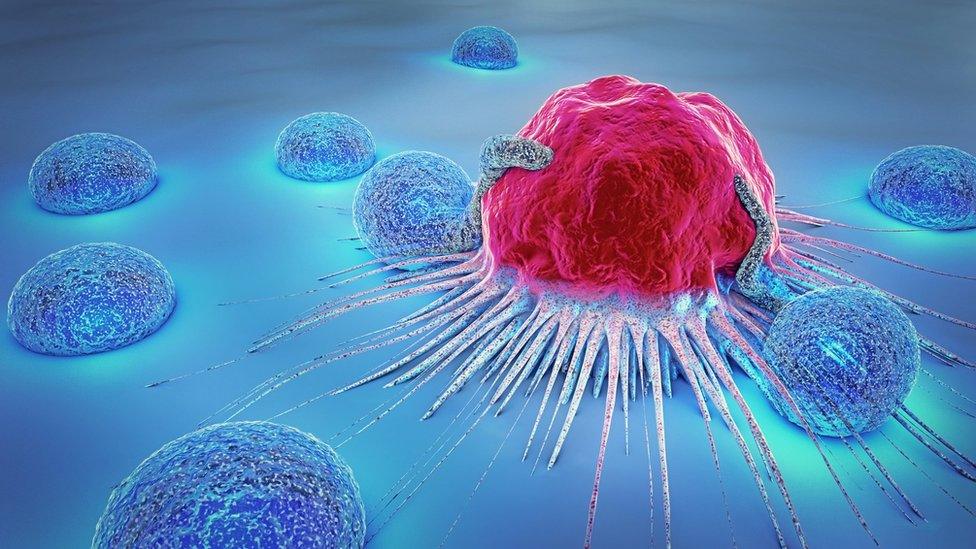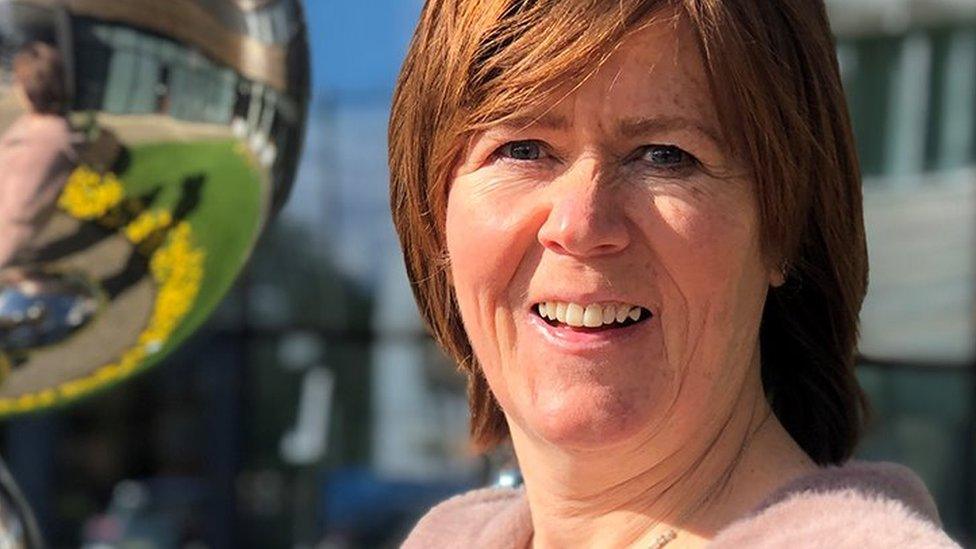University of Sheffield funding to treat blood cancer cells
- Published

Researchers at the University of Sheffield said chemotherapy helps keep the disease under control but dormant, or "sleepy" cells are not targeted
More than £2.5m will be ploughed into new research into blood cancer in Sheffield, it has been announced.
The University of Sheffield was given the funding to look into dormant cancer cells and develop new treatments for myeloma, a type of blood cancer.
Myeloma affects 6,000 people in the UK every year, the university said.
The researchers said their findings could have implications for other cancers which spread to the bone, such as breast and prostate cancer.
"The cancer develops from plasma cells (a type of white blood cell) found in bone marrow, inside our bones which produce blood cells," the university said."There is currently no cure for myeloma.
"Treatments such as chemotherapy help keep the disease under control, however, when in contact with bone cells, and while dormant the cells enter a "sleepy state" which means that they aren't targeted by chemotherapy."
Cell dormancy
Dr Alanna Green, leading the study at the university's Healthy Lifespan Institute, said the team had already worked on a drug to target dormant cells but now want to find a treatment for all myeloma cells, including the "sleepy" cells.
"Karonudib is the first drug we've found that can kill these dormant cancer cells and successfully kills about 50-75%," Dr Green said.
"However, it can't completely get rid of them and for curative treatment we need to kill all the cancer cells. Our biggest challenge is there is still a lot we don't know about dormant cancer cells."
Dr Green said the funding, of £2.34m from The Wellcome Trust and £500,000 from Yorkshire Cancer Research, would "bring together international experts to gain a deeper understanding of cancer cell dormancy in myeloma".
"By better understanding the cells, this research can either make Karonudib more effective, or may help generate completely new treatments," she said.
She said the additional money from Yorkshire Cancer Research would also fund research into cell dormancy in cancers that spread to bone, like breast and prostate cancer.

Follow BBC Yorkshire on Facebook, external, Twitter, external and Instagram, external. Send your story ideas to yorkslincs.news@bbc.co.uk, external.
Related topics
- Published14 August 2023
